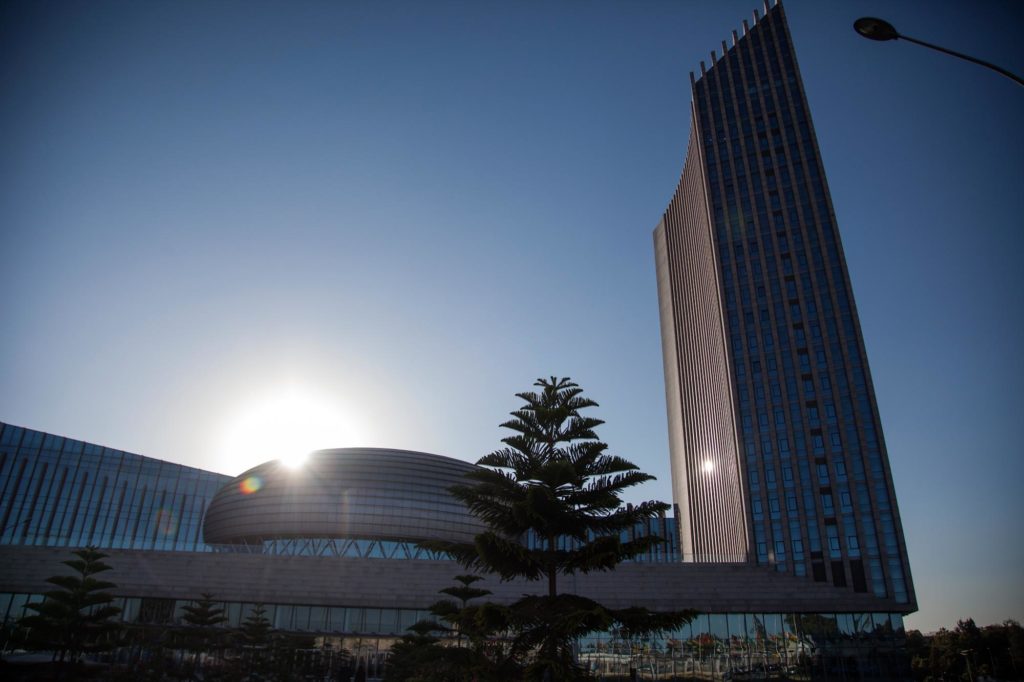According to the 2018 African Union Commission Report, Africa loses USD$60 billion each year due to corruption and illicit financial flows. In this blog post, Prof. Hajer Gueldich, Professor in Law at the University of Carthage, Tunisia, examines the African Union’s approach to tackling corruption through law and policy.

The great paradox of the African continent lies in the fact that despite its natural resources, Africa is among the poorest areas in the world. Among the endogenous and systemic factors that continue to hamper Africa’s development is corruption. Corruption weakens political and judicial institutions and undermines their credibility. It affects all domains and all levels of society: from the small trader to the top of the state, including civil servants in public administrations. All this shows that corruption is a scourge against which the continent must act and react, in terms of prevention, detection, protection, and punishment.
The African Union Convention on Preventing and Combating Corruption Convention was adopted in Maputo on July 11th, 2003 by 55 countries in Africa, and entered into force on 5th August, 2006. It aims to promote coordination and harmonisation of policies and legislation on corruption. It is also designed to facilitate and regulate cooperation among State Parties to ensure the effectiveness of measures and actions to prevent, detect, punish and eradicate corruption. The Convention provides for the establishment of the African Union Advisory Board on Corruption (AUABC). This board was created on 26th May 2009 as required by Article 22 (1) of The Convention. It is the sole continental organisation mandated by the African Union to deal with corruption and related issues in Africa.
The main mandate of the Board is to promote and encourage the adoption of measures and actions by member States to prevent, detect, punish, and eradicate corruption and related offenses in Africa as well as to follow up on the application of those measures and submit regular reports to the Executive Council of the African Union on the progress made by each member State in complying with the provisions of the Convention.
Africa’s anti-corruption approach
In order to operationalise the provisions of the Convention, the AU and its institutions have devised a number of principles to improve the situation across the continent especially in the public sector. The AU approach, based on the convention, covers a wide range of areas including recruitment, code of conduct, finances, procurement and so on.
Generally, member States are required to set up, make operational and strengthen the authorities or agencies responsible for combating corruption both in the public and private sectors.
Recruitments in the public sector must be done on the basis of merit, transparency and equality. Furthermore, all public officials are required to declare their assets when they first take up their duties as well as during and at the end of their mandate.
The AU also emphasizes the need to introduce codes of conduct in relation to public offices. In practice, this could be done by the establishment of a committee or a body responsible for drawing up such a code of conduct and ensuring the application of this code. The body would also be responsible for raising awareness and training public officials on ethics within the public service. The code could go further by requiring States to publish information, in particular through generating periodic reports on the risks of corruption within the public administration.
The AU approach also focuses on good management of public finances, and transparency and efficiency in public procurement. States are enjoined to adopt legislative and other measures to make operational and strengthen internal systems of accounting, auditing and monitoring with regard in particular to public revenues, customs and tax revenues, rental expenditure and procedure, procurement, and management of public goods and services. The approach also extends to transparency in the funding of political parties. The convention prohibits the use of funds acquired through illegal and corrupt practices to finance political parties.
The convention also covers the private sector. Member States are required to adopt legislative and other measures to prevent acts of corruption and related offenses committed in the private sector and by agents of this sector. This is to discourage and prevent the widespread corporate practice of paying bribes to obtain contracts from officials. One important suggestion in this area is for the African Union to put in place a mechanism at the continental level to deal with corruption in the private sector. Currently most of the cases implicating corruption in the private sector are often brought at the International Centre for Settlement of Investment Disputes.
On a final note, close cooperation between African states would be required to make the laudable provisions of the Convention effective. This would include cooperation in investigating corruption and in the extradition of implicated individuals. Member States would especially need to strengthen the legal framework in their domestic constitutions and roles should also be created for the media and civil society in monitoring corruption.


Leave a Reply